Top Entrepreneurship Books
9 min read ⌚
Want to become the next Elon Musk? Why don’t you first spend some time learning about how the one we’ve grown to adore came to be.
Because entrepreneurship is not as easy as you would think. And it doesn’t take only a good idea and a lot of courage to turn it into a functioning business. You’ll also need a lot of hard work, and even more knowhow.
But, why would you listen to us?
Here are few people you should. These are the best entrepreneurship books on the market!
#1. “Capitalism, Socialism, and Democracy” by Joseph A. Schumpeter
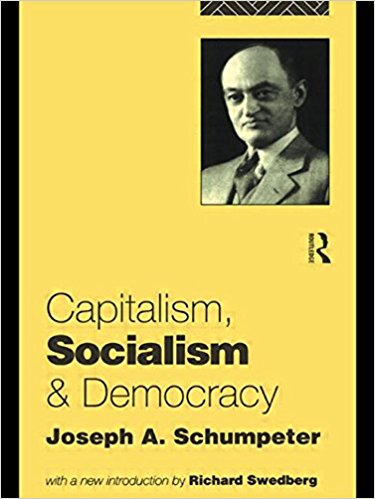 Let’s start with a bit of theory. And what better way other than with a book by the original entrepreneurship theoretician.
Let’s start with a bit of theory. And what better way other than with a book by the original entrepreneurship theoretician.
Joseph Schumpeter was a colorful character. He once promised to become the most influential economist in the world, the best horseman in Austria, and the greatest lover in Vienna. At the end of his life, he regrettably sighed that he failed at one: there were just too many good riders in Austria.
Jokes aside, Schumpeter was a genius thinker. He thought that economy is moved forward by innovation and change which create temporary monopolies which are creatively destructed afterward by another great entrepreneurship idea.
He also believed that capitalism will one day fall apart because of the success of these entrepreneurs. And because of the intellectual elite advocating a more humane society. He explained this in-depth in “Capitalism, Socialism, and Democracy,” probably his most popular book.
#2. “The 4-Hour Workweek: Escape 9-5, Live Anywhere, and Join the New Rich” by Timothy Ferriss
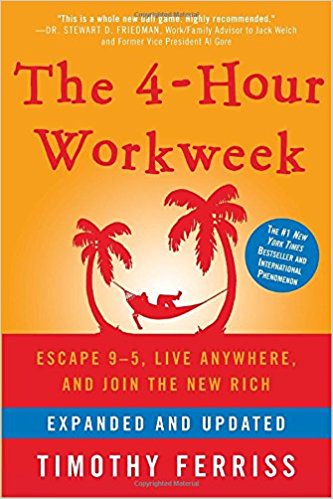 Like it or not, you’re living in a capitalist society. And the chances are, you’ll live in one as long as you live. (That is, unless you want to move to Cuba or North Korea – which, let’s face it, is one of the worst ideas you may have in your life).
Like it or not, you’re living in a capitalist society. And the chances are, you’ll live in one as long as you live. (That is, unless you want to move to Cuba or North Korea – which, let’s face it, is one of the worst ideas you may have in your life).
And in a capitalist society, you can choose; you’ll either work 8 hours a day, or be the one who gives orders to others to work for him. The latter kind is the one Timothy Ferriss talks about.
In his opinion – and he knows this from personal experience – working for (more than) a third of your life is even worse than moving to North Korea. So, he advises you to stop working so much. And work for only 4 hours. A week.
Yes, you’ve heard it right!
It’s not a fantasy. And “The 4-Hour Workweek” is a 50+ tips and tricks cheat sheet. So, what are you waiting for?
#3. “Tools of Titans: The Tactics, Routines, and Habits of Billionaires, Icons, and World-Class Performers” by Timothy Ferriss
Timothy Ferris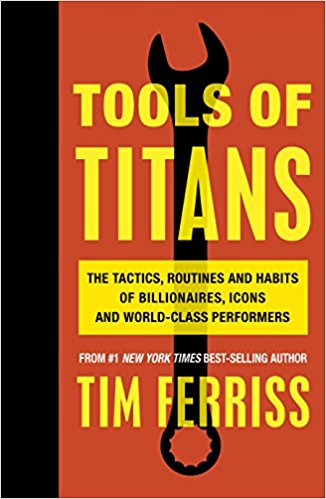 is a regular guest on these entrepreneurship booklists. And there’s a reason for that! An entrepreneur himself, he has built an empire around his patented 4-hour learning techniques.
is a regular guest on these entrepreneurship booklists. And there’s a reason for that! An entrepreneur himself, he has built an empire around his patented 4-hour learning techniques.
“Tools of the Titans” might be an even better book than our previous entry. It’s as groundbreaking, but much more diverse and multifunctional. This may sound a bit strange, when you realize that most of Ferriss’ words inside this book are questions.
The mystery unravels when you hear that the answers are given by top actors, athletes, and scientists.
Yes, you’re right: “Tools of the Titans” is Tim Ferriss’s podcast in the form of a book!
And if you don’t know anything about “The Tim Ferris Show,” it would suffice here to say that it is the first business/entrepreneurship/interview podcast to pass 100 million downloads.
#4. “Zero to One: Notes on Startups, or How to Build the Future” by Peter Thiel
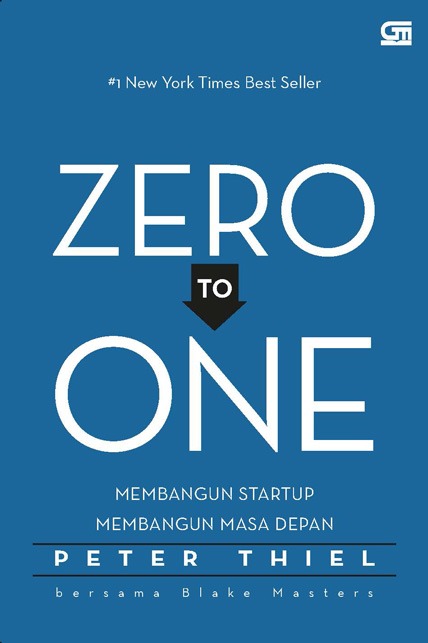 If you don’t know him by now, Peter Thiel is the 3-billion-worth co-founder of PayPal and the first outside investor in Facebook.
If you don’t know him by now, Peter Thiel is the 3-billion-worth co-founder of PayPal and the first outside investor in Facebook.
So, safe to say, that whenever he’s trying to relate a message, it must be worthwhile to pay attention.
And in “Zero to One” he has quite the interesting idea. Namely, that most innovators are moving from 1 to 1.1, 1.2 etc. when the greatest entrepreneurs strive to make that coveted leap from 0 to 1.
In laymen’s terms, this means that if you’re planning to build the next multi-billion-dollar business, it would be a good idea to stop thinking in terms of new operating systems or different types of tablets. Because, the next Bill Gates and Steve Jobs out there is currently working in a totally different industry.
If you focus enough, that someone may be even you.
#5. “The Lean Startup: How Today’s Entrepreneurs Use Continuous Innovation to Create Radically Successful Businesses” by Eric Ries
Eric Ries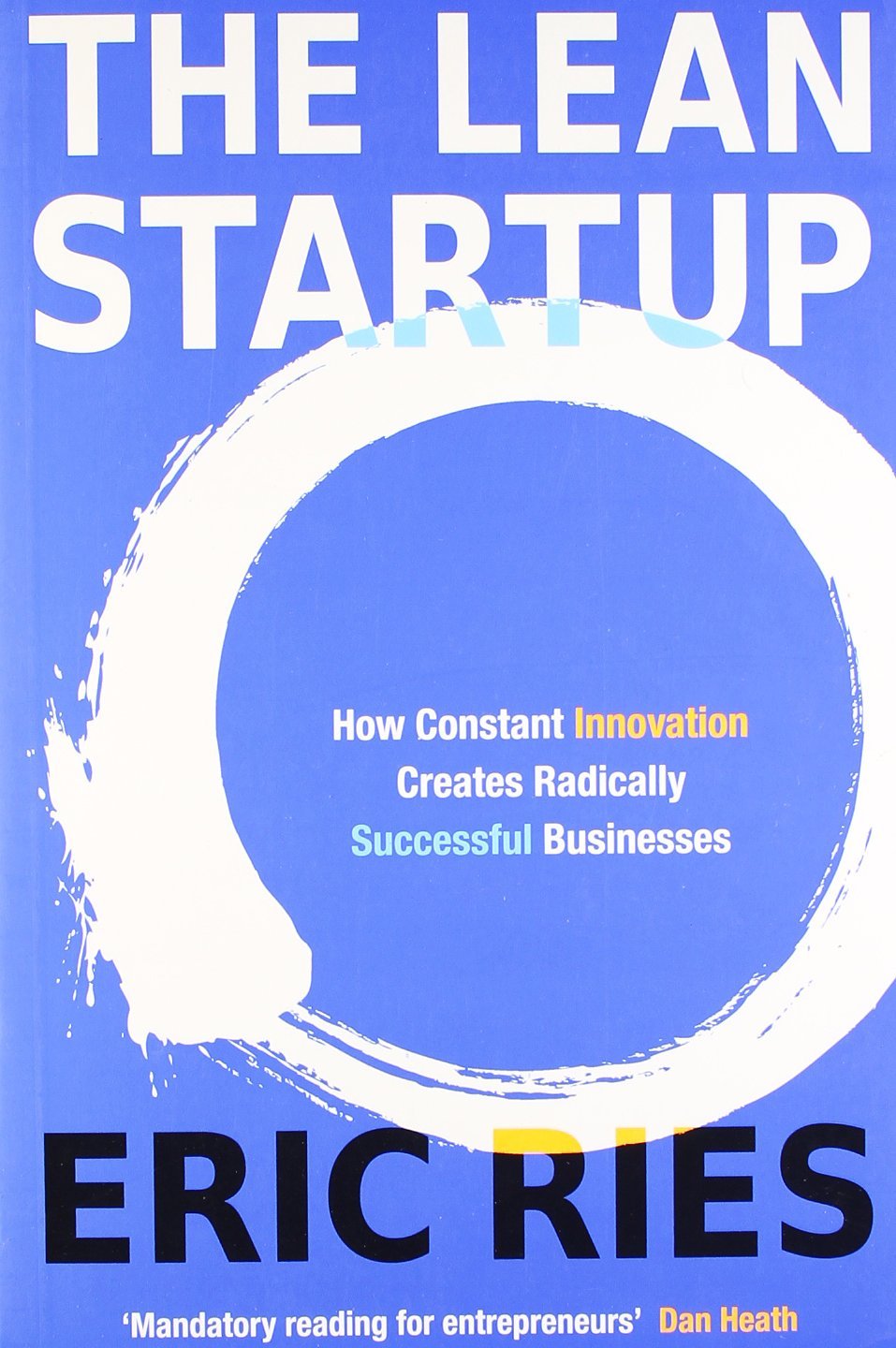 has had his own fair share of startups behind him; some of them were successful, others spectacularly failed. He learned how to take lessons from the latter and implement them in the former. In fact, that’s why he’s currently where he is.
has had his own fair share of startups behind him; some of them were successful, others spectacularly failed. He learned how to take lessons from the latter and implement them in the former. In fact, that’s why he’s currently where he is.
And that’s why “The Lean Startup” is one of the best books – if not the best – for every young entrepreneur out there. Its main idea is that startups don’t need to be such dangerous endeavors. And that efficiency can be acquired in a much faster manner than it is usually believed.
This is the background for his own patented lean startup methodology, which encourages regulated experimentation, validated learning, and iterative releases.
It worked for him. It should work for you as well.
#6. “The $100 Startup: Reinvent the Way You Make a Living, Do What You Love, and Create a New Future” by Chris Guillebeau
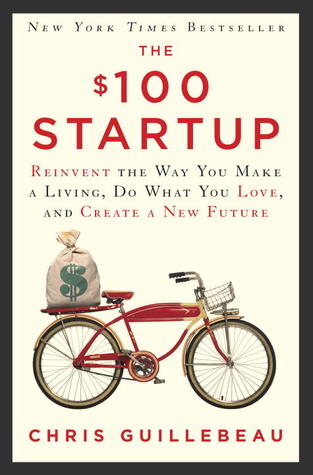 If someone came to you now and told you that you can change your life with merely $100, you’ll probably won’t believe him.
If someone came to you now and told you that you can change your life with merely $100, you’ll probably won’t believe him.
Yet, if that someone has identified and closely studied 1,500 individuals who built large businesses on a $100 original investment, you’ll probably think again.
Well, Chris Guillebeau Is the eccentric we’re talking about, and “The $100 Startup” is the book we gladly recommend. It is an in-depth study of the 50 most interesting $100 to $100,000 cases, coupled with a lot of practical advice and an almost manic enthusiasm.
The most valuable lesson?
You can earn money from your passion. You just need to find its most lucrative aspect.
#7. “Shoe Dog: A Memoir by the Creator of Nike” by Phil Knight
 For most of human history, knowledge was imparted only from one generation to the next. And, consequently (like “The Greatest Salesman in the World” taught us) the secrets of success were kept safe in small groups of elected people.
For most of human history, knowledge was imparted only from one generation to the next. And, consequently (like “The Greatest Salesman in the World” taught us) the secrets of success were kept safe in small groups of elected people.
But in the 20th century, the world of money turned on its head. And, suddenly, some of the richest people alive started sharing their secrets with the world.
And when that happens, expect Phil Knight, the founder of “Nike,” to be the one who’ll keep the lest things to himself. Because, he’s not only one of the richest people in the world; he’s also one of the most generous philanthropists.
And “Shoe Dog” explains how he got to there. The beginning? A young man in a Japanese shoe factory, acting as a representative of a large American, when in fact he is its only employee and his father its only investor.
Already interesting? It only gets better.
#8. “Elon Musk: Tesla, SpaceX, and the Quest for a Fantastic Future” by Ashlee Vance
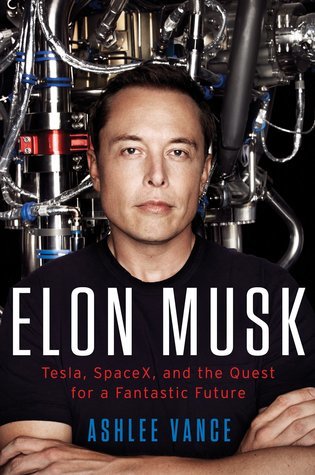 Elon Musk needs neither introduction nor hyperlinks.
Elon Musk needs neither introduction nor hyperlinks.
One of the most unique entrepreneurs at the moment, he is described by Ashlee Vance, the author of “Elon Musk” as an amalgam of people as brilliant and as innovative as Thomas Edison and Howard, Henry Ford and Steve Jobs.
And he is fully dedicated to building the future of mankind – arguably, more than any other person alive.
Thorough researched and splendidly written, “Elon Musk” by Ashlee Vance is a book which transcends the world of entrepreneurship.
Much like Elon Musk himself, in fact.
#9. “Anything You Want: 40 Lessons for a New Kind of Entrepreneur” by Derek Sivers
Derek Sivers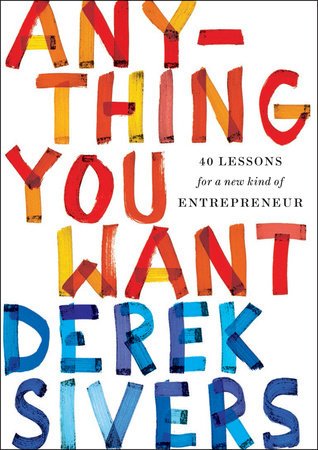 originally wanted to become a musician. However, he ended up being an entrepreneur in the music industry. You may already know the company he founded and subsequently sold, CD Baby.
originally wanted to become a musician. However, he ended up being an entrepreneur in the music industry. You may already know the company he founded and subsequently sold, CD Baby.
The lesson?
Whatever you want to do, this is an age of entrepreneurs. And the sooner you realize this, the better for your future. However, it doesn’t hurt to work what your passionate about the most.
“Anything You Want” is Sivers’ very sincere, very concise (it’s less than a hundred pages) entrepreneurship manifesto. It compresses 10 years of experience in a one-hour read.
And yes – it’s a must read.
Like this summary? We’d like to invite you to download our free 12 min app, for more amazing summaries and audiobooks.
#10. “The Freaks Shall Inherit the Earth: Entrepreneurship for Weirdos, Misfits, and World Dominators” by Chris Brogan
 No, we didn’t choose this book because of it’s catchy title! (Although, this would be a good place to say that we do love the title!) We chose it because its author is Chris Brogan, #1 social media power influencer in the world.
No, we didn’t choose this book because of it’s catchy title! (Although, this would be a good place to say that we do love the title!) We chose it because its author is Chris Brogan, #1 social media power influencer in the world.
And because we’re down for whatever he’d say!
And in “The Freaks Shall Inherit the Earth” he says that it’s not only true that non-conformists make the world go round; it’s also even truer that the more unusual and more eccentric these non-conformists are – the better it is for the progress of humanity.
The book is a wonderful rallying call to these guys. And if we are allowed to paraphrase it, it sounds something like this: “Misfits of the world – unite! You have created the world of today, you’ll shape the world of tomorrow as well!”
#11. “The Introvert Entrepreneur: Amplify Your Strengths and Create Success on Your Own Terms” by Beth Buelow
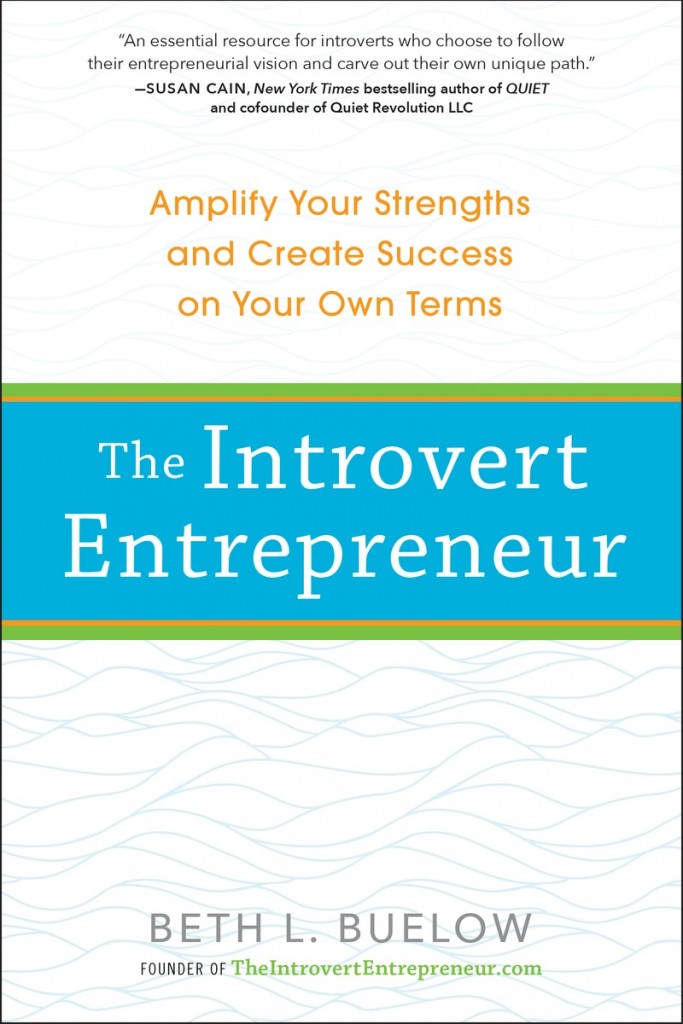 In more than one way, “The Introvert Entrepreneur” may be read as a companion piece to Brogan’s “The Freaks Shall Inherit the Earth.”
In more than one way, “The Introvert Entrepreneur” may be read as a companion piece to Brogan’s “The Freaks Shall Inherit the Earth.”
Much like Brogan, Beth Buelow is aware that the people who change the world are rarely conventional. However, she chooses to focus on those who are not merely misfits, but who are introverts as well.
And, at first sight, it’s a tough world for introverts out there! Business is a war, and it seems as if it’s a place where only loud and aggressive dominators can prosper.
However, Buelow shows that this doesn’t need to be the case. After interviewing many introverts who have flourished as entrepreneurs, she shows that you don’t need to lose your personality to be part of a success story.
And she explains how introverts can use their weakness to their benefit. So, what if the world is loud and chaotic!
#12. “The Third Wave: An Entrepreneur’s Vision of the Future” by Steve Case
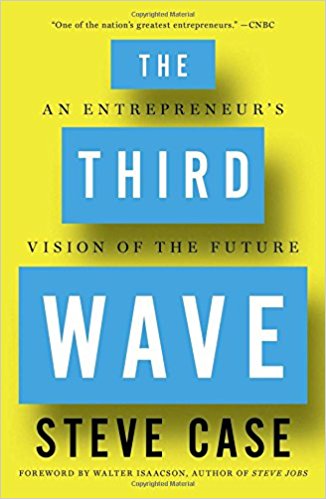 Let’s put it this way: if you’ve ever used dial-up internet, you should be thankful to Steve Case, the author of “The Third Wave.” Because, he is also the co-founder and one-time CEO of AOL.
Let’s put it this way: if you’ve ever used dial-up internet, you should be thankful to Steve Case, the author of “The Third Wave.” Because, he is also the co-founder and one-time CEO of AOL.
And as Case convincingly argues, he was merely one of the many entrepreneurs who rode the first wave of the technological revolution. They were the pioneers, the people who paved the way for the internet by building the infrastructure.
The second wave came with Google, Facebook, Instagram, Twitter and the rest. They used the existing infrastructure and exploited its possibilities. And brought to many people on the planet a new, virtual way to live their lives.
Steve Case’s book wouldn’t have been called “The Third Wave” if he hadn’t written a word or two about what follows next. Entrepreneurs of the world, lend us your ears: the Internet of Things. Enough with the virtual world. It’s time you transform the real one.
#13. “The Entrepreneur’s Guide to Mastering the Inner World of Business” by Nanci K. Raphael
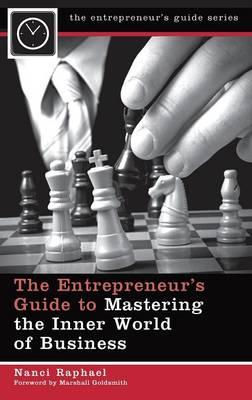 “The Entrepreneur’s Guide to Mastering the Inner World of Business” is not your regular entrepreneurship book. Most of them are interested in the value of your ideas and the process which might transform an idea into a startup, or a startup into a million-dollar business.
“The Entrepreneur’s Guide to Mastering the Inner World of Business” is not your regular entrepreneurship book. Most of them are interested in the value of your ideas and the process which might transform an idea into a startup, or a startup into a million-dollar business.
Nanci Raphael writes about something all of these authors tend to forget. The barriers. The obstacles. The emotional challenges.
Unfortunately, they are both real and numerous. And without a proper guidebook may obliterate even the best idea and even the most promising startup.
That’s why, “The Entrepreneur’s Guide to Mastering the Inner World of Business” dedicates each of its chapters on a separate problem, ranging from doubt and loneliness to stress and tiredness.
You know – the things you can’t plan. But, which will inevitably happen.
#14. “The Entrepreneur Mind: 100 Essential Beliefs, Characteristics, and Habits of Elite Entrepreneurs” by Kevin D. Johnson
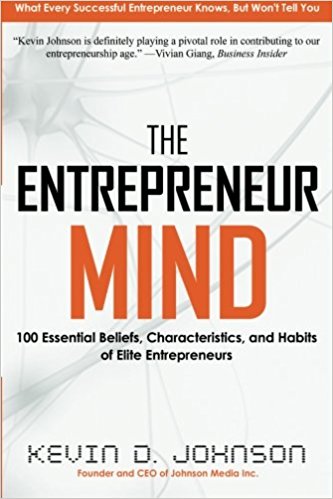 Becoming an entrepreneur is not an easy task. It may have to do something with your DNA, but, much more, it has everything with how much dedication and effort you’re planning to offer.
Becoming an entrepreneur is not an easy task. It may have to do something with your DNA, but, much more, it has everything with how much dedication and effort you’re planning to offer.
In “The Entrepreneur Mind,” Kevin Johnson, a serial entrepreneur, shares his experiences and knowledge, structuring them into one hundred lessons, divided in seven different areas.
So, prepare to learn 35 new things about strategy, everything from thinking big to having an exit strategy. Then, discover why there’s no point to rush for an MBA, before delving into 13 lessons about the importance of people.
The fourth area is finance (14 lessons), followed by 13 lessons about marketing and sales. You can’t be an entrepreneur without picking up 7 leadership tips. Johnson ends the book with 17 short instructions about motivation.
His final lesson: “you’re an entrepreneur forever.”
#15. “Smarter Faster Better: The Transformative Power of Real Productivity” by Charles Duhigg
Charles Duhigg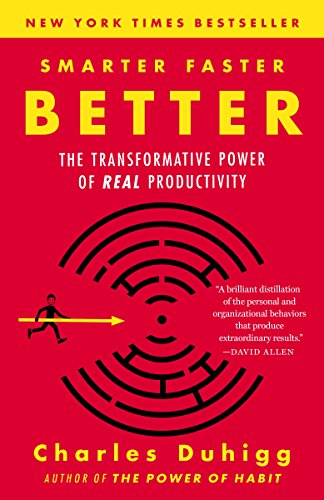 is a Pulitzer-Prize winning reporter for “The New York Times” and an author of two books on productivity.
is a Pulitzer-Prize winning reporter for “The New York Times” and an author of two books on productivity.
Duhigg’s first book, “The Power of Habit,” is probably the more celebrated one. However, “Smarter Faster Better” may be the better choice for entrepreneurs who like to think big. Because, while Duhigg’s debut book concentrates on why we do what we do, this one explores how we can do it better.
Well-researched and brilliantly written, “Smarter Faster Better” explores in-depth eight productivity concepts. In order, these are: motivation, teams, focus, goal setting, managing others, decision making, innovation, and absorbing data.
Even at first glance, many overlap with Johnson’s lessons. As the perfect evidence how essential they are.
Emir is the Head of Marketing at 12min. In his spare time, he loves to meditate and play soccer.







